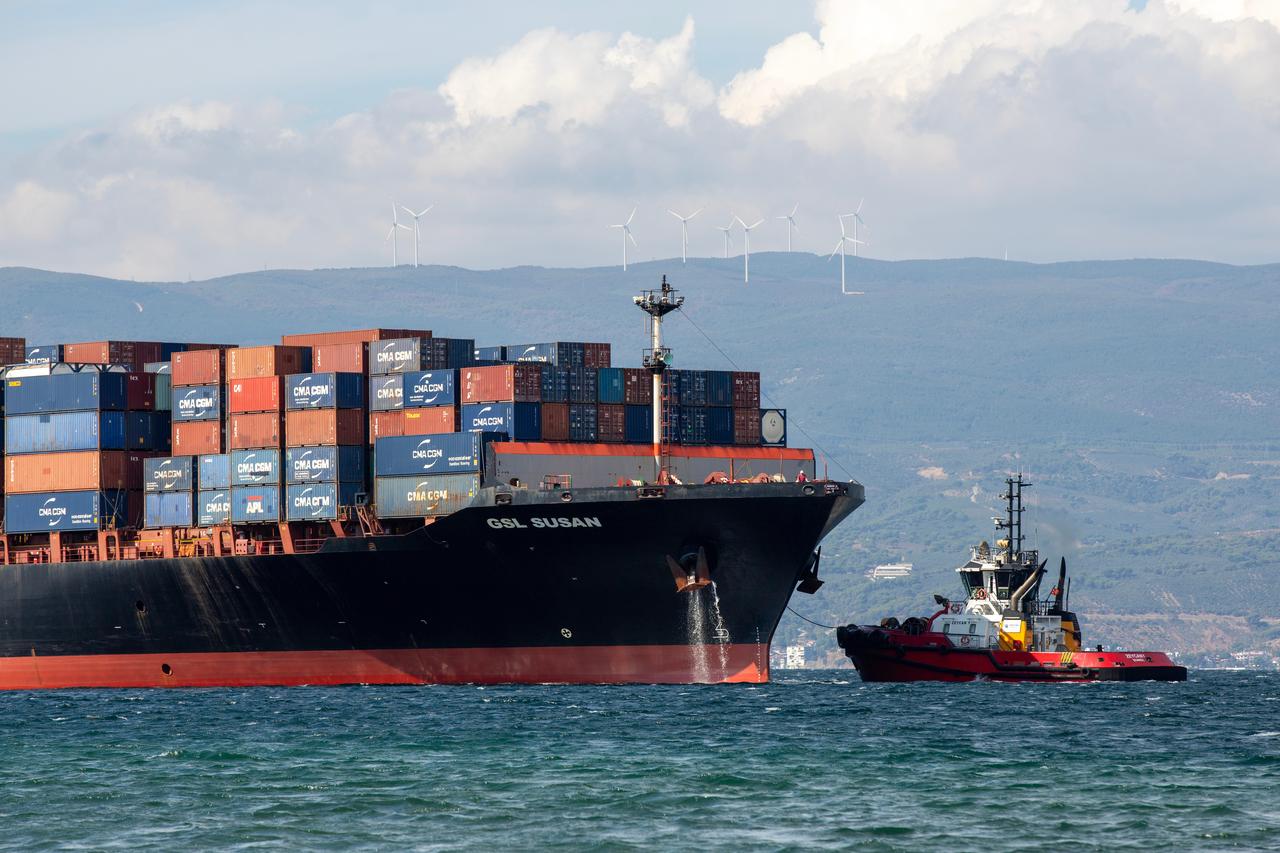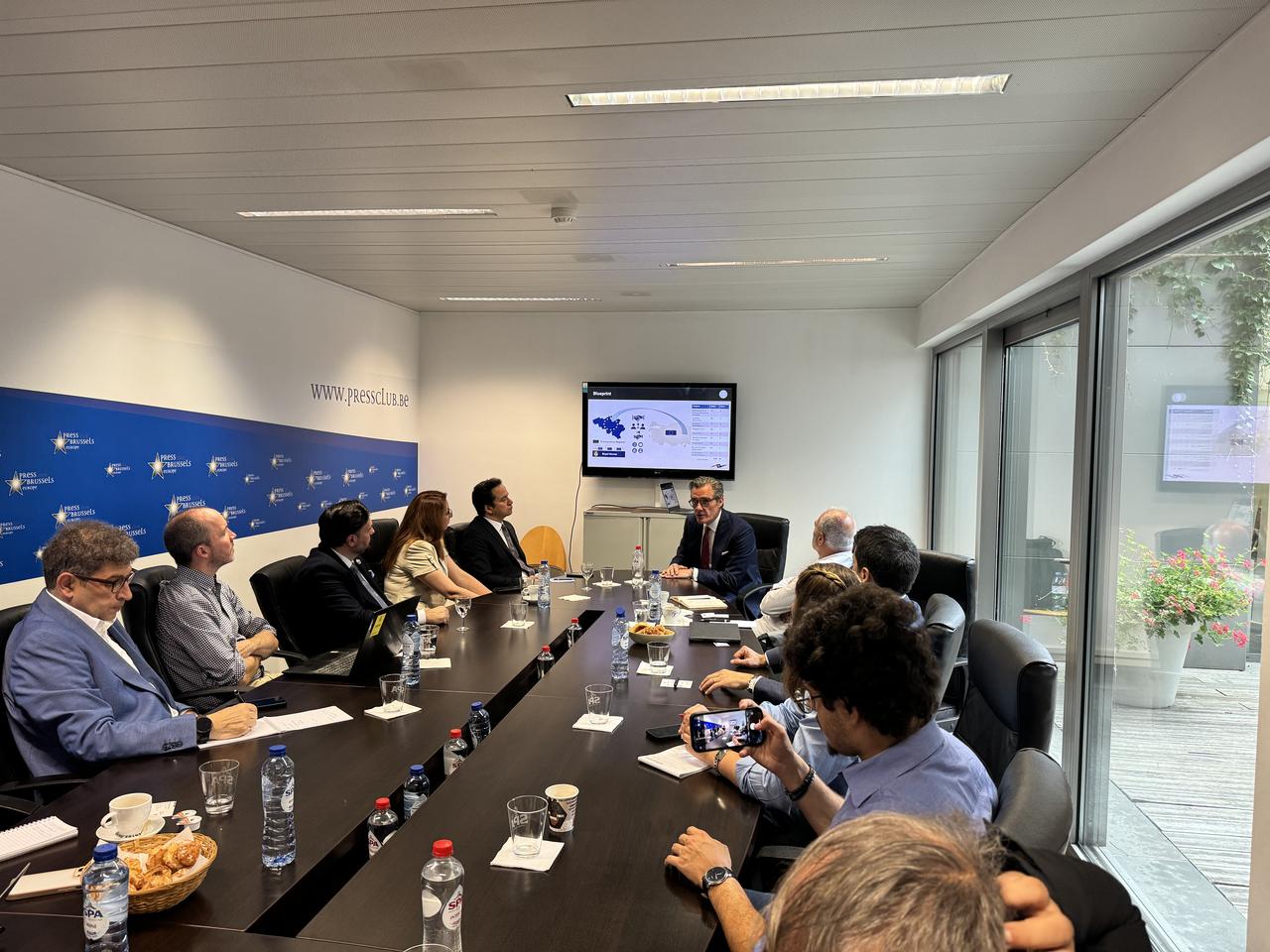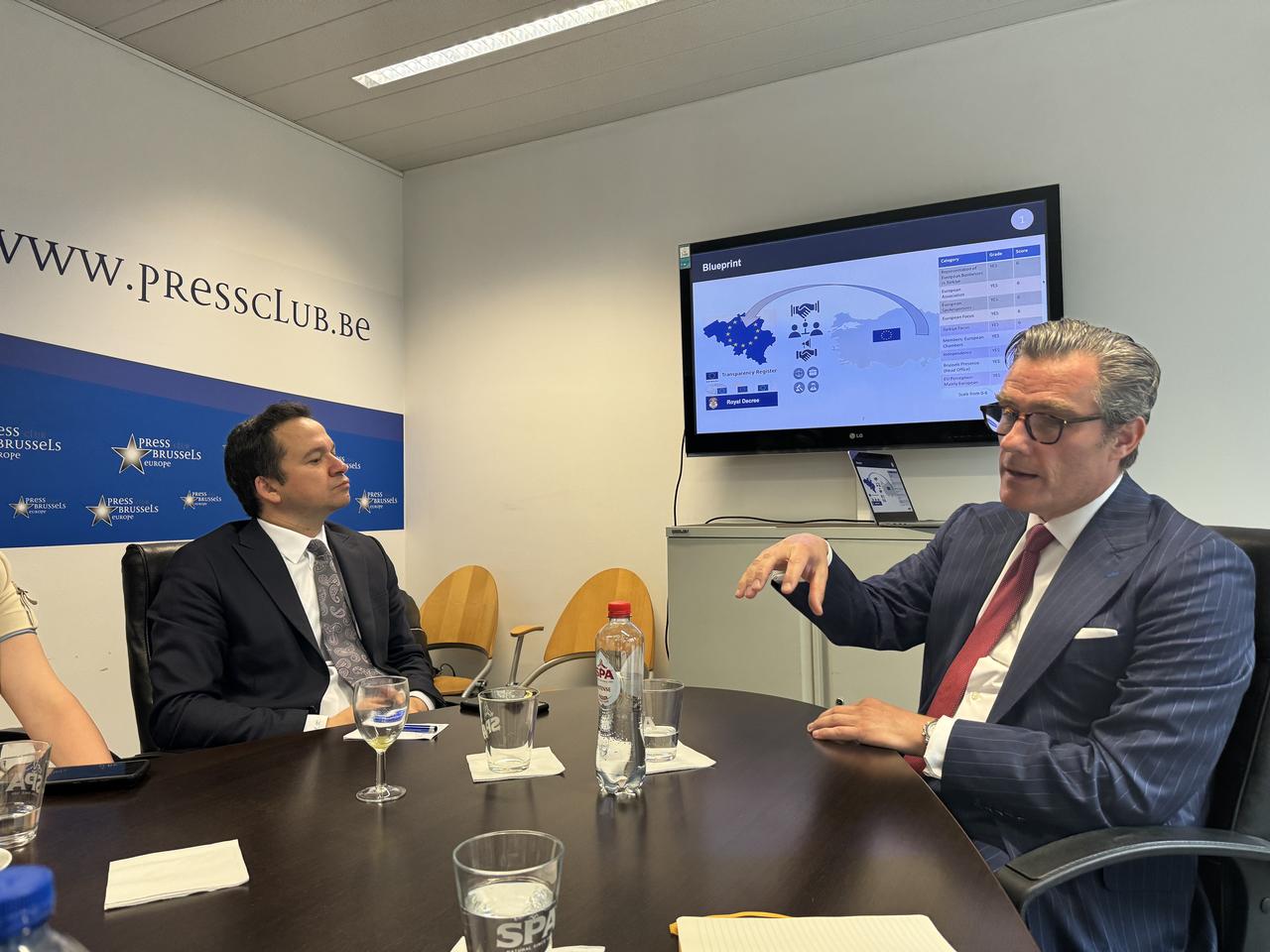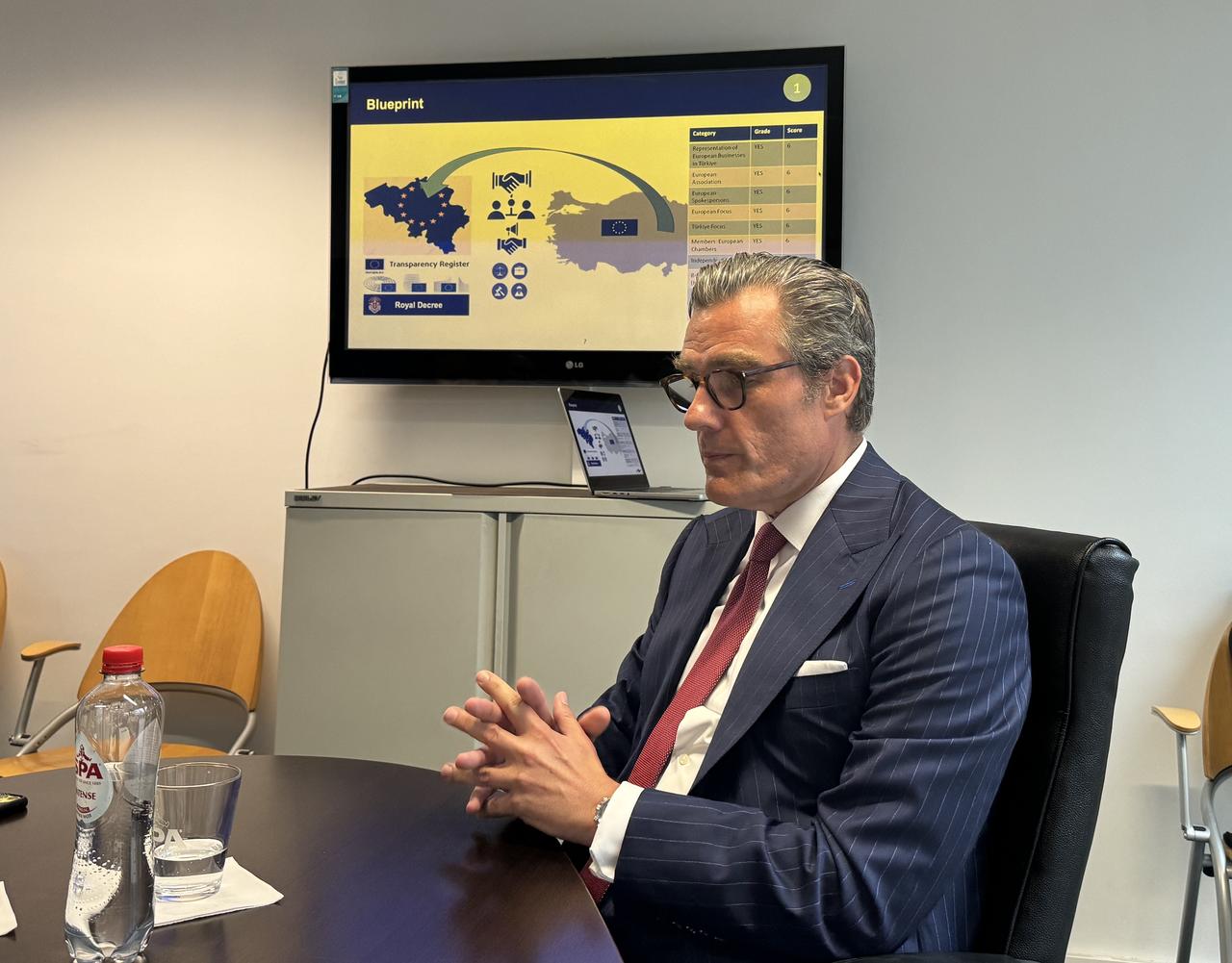
Comparing the Türkiye-E.U. Customs Union to “still running on Windows 2.0,” Markus Slevogt, head of the European Turkish Trade and Investment Council (ETTIC), has called on Brussels to urgently modernize the decades-old agreement and enhance strategic cooperation with Türkiye, particularly in the areas of trade and defense.
Speaking at a briefing hosted by ETTIC at the Brussels Press Club on Monday, Slevogt stressed that the Customs Union—formally launched in 1995 but based on structures dating back to the 1970s—has significantly fallen behind the needs of today’s economy. He argued that the existing framework is ill-equipped to handle the rapid rise of e-commerce, artificial intelligence, and the growing complexity of cross-border business.

“The current structure is no longer fit for purpose,” he said, highlighting the urgency of reform. “We need a framework that reflects the realities of e-commerce, artificial intelligence, and modern business practices.”
Slevogt emphasized the importance of expanding the agreement to include key sectors that were previously excluded, such as agriculture, services, public procurement, e-commerce, and dispute resolution. He warned that unless the agreement is updated, it risks holding back the full potential of Türkiye-E.U. economic relations and failing to reflect mutual interests in a rapidly evolving global trade environment.
Türkiye and the E.U. have accelerated efforts to modernize the Customs Union agreement, following their first High-Level Dialogue on Trade held on July 8, 2024. This momentum continued with the resumption of the High-Level Economic Dialogue (HLED) in April 2025.
Despite being part of the E.U. Customs Union for over 30 years, Türkiye is not automatically included in the free trade agreements the E.U. signs with third countries—an imbalance that often places Turkish exporters at a disadvantage. Additional challenges include road transport quotas imposed on Turkish trucks and Türkiye’s limited involvement in the E.U.’s consultation and decision-making processes.

Pointing to the strength of current trade flows, Slevogt said the E.U. remains Türkiye’s largest economic partner, accounting for more than 40% of the country’s total trade. He noted that annual bilateral trade between Türkiye and the E.U. has reached €230 billion ($266.81 billion), while European companies have invested a total of €210 billion in Türkiye since 2002.
“This is a long-term commitment that reflects the strength and depth of our economic relationship,” he said, adding that the E.U.’s role in Türkiye’s trade ecosystem remains indispensable.
He recalled that ETTIC was established by European bilateral chambers of commerce representing countries with significant investments in Türkiye. The Council’s mission, he explained, is to help create a more stable and forward-looking environment for trade and investment between the two sides.

Slevogt expressed concern that political considerations have played an outsized role in economic discussions, cautioning against allowing political interference to delay progress. “We are businesspeople. We leave politics to the politicians. We want to keep business separate from politics,” he said, underlining the importance of allowing economic pragmatism to guide the modernization process.
He argued that updating the Customs Union is the most direct and effective way to reinforce economic ties and build trust. Without a revised agreement, he warned, both sides may miss the opportunity to align their economic interests in a rapidly changing global environment.
“The more politics gets involved, the more the economic agenda is pushed aside,” he added, urging both parties to let trade policy be guided by practical needs rather than political calculations.
In addition to trade and investment, Slevogt called for closer cooperation in defense, describing the E.U.’s engagement with Türkiye as a strategic necessity. He said the evolving geopolitical landscape demands stronger coordination, particularly in areas related to regional security.
“The world is changing fast. Europe and Türkiye must act together where our security interests overlap,” he said, stressing that defense ties should evolve in parallel with economic cooperation.
He concluded by emphasizing that ETTIC approaches Türkiye-E.U. relations from a business-oriented perspective and aims to support realistic, applicable solutions. He called on policymakers to recognize the scale of mutual interest and take concrete steps to reinvigorate the partnership through the modernization of the Customs Union and broader strategic engagement.